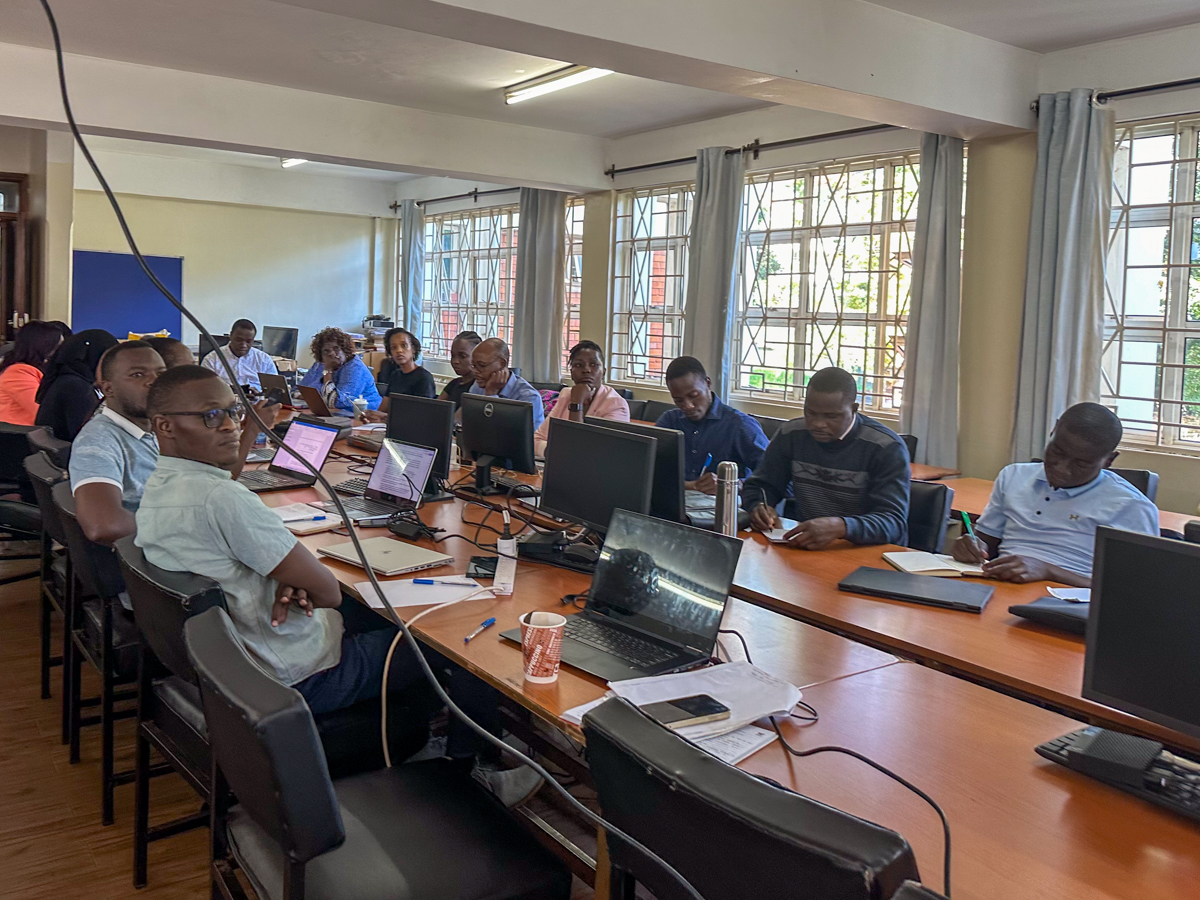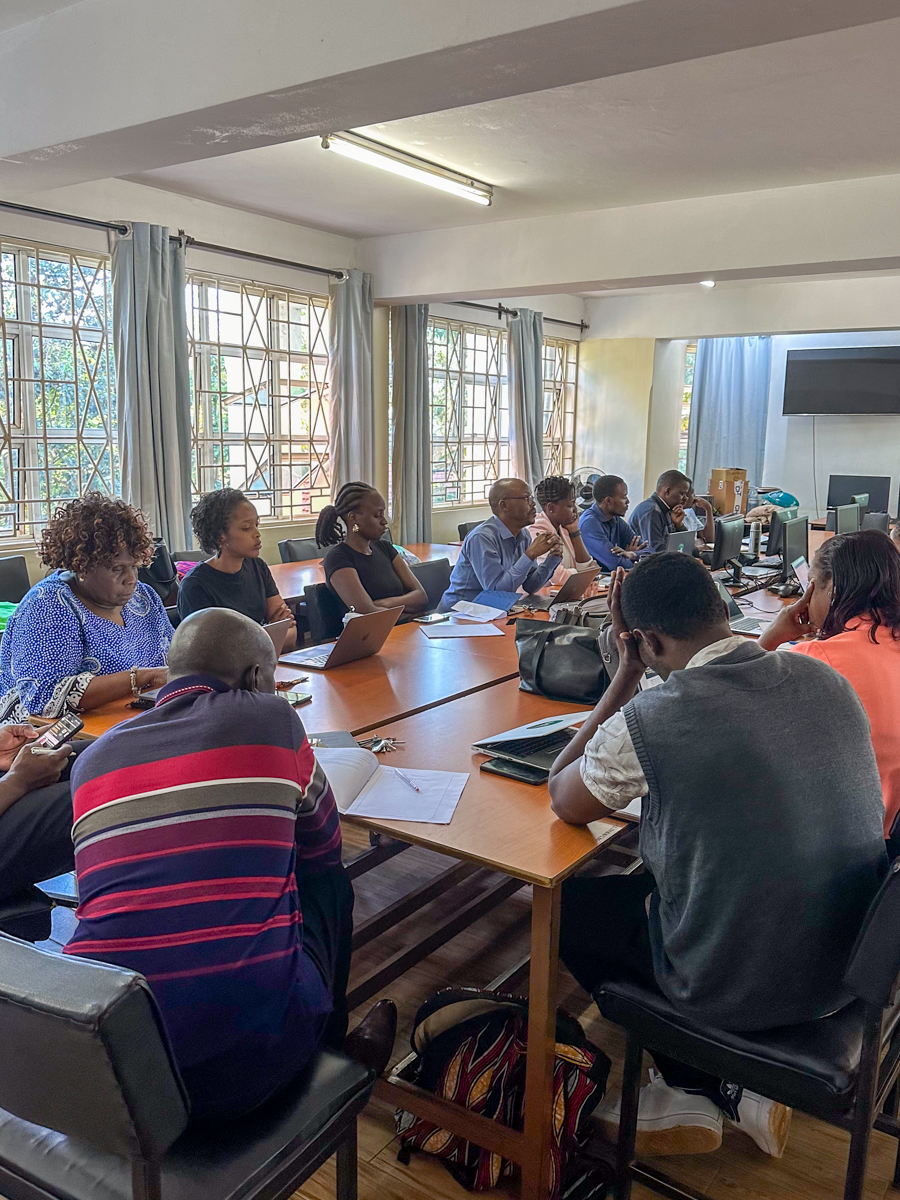By Teddy Kisembo, Paul Isolo Mukwaya, Badru Bukenya and Hafisa Namuli
ACRC’s Kampala city team recently embarked on a reflective journey, dissecting the theory of change (ToC) and conceptual framework (CF) that underpin ACRC’s transformative work in African cities. The workshop, held at Makerere University in October, was a melting pot of ideas, insights and a shared vision for urban (re)development in Kampala city.
Two participants from Makerere University joined the Kampala city team, to benchmark the CF and ToC. They were particularly interested in leveraging these frameworks that could be used to guide their own research project, “Urban futures: Toward health equity, inclusive governance and climate adaptation in African informal settlements”. This project is being undertaken with partners from the University of Waterloo, Canada, the Institute of Development Studies, UK, Kampala Capital City Authority, the Training and Research Support Centre (TARSC) in Harare, Zimbabwe, and Sierra Leone Urban Research Centre (SLURC) in Freetown, Sierra Leone.
They found the workshop to be very informative and helpful in to supporting their processes around undertaking a political economy analysis for the city. They are now planning to use the ToC and CF to guide their work.

Theory of change and conceptual framework: A dynamic duo
ACRC’s ToC serves as a roadmap for achieving desired outcomes, while the CF serves as a tool for understanding the complexity of the urban context in which projects operate. Together, they empower project teams to identify the enablers and inhibitors of urban systems functioning in Kampala City, develop targeted interventions, anticipate challenges and monitor progress.
The workshop emphasised the importance of aligning the ToC and CF with ACRC’s broader goals, to ensure that the portfolio of action research projects being implemented in Kampala will contribute meaningfully to improving the lives of urban citizens in the city.

Key takeaways and next steps
The team further explored the practical application of the frameworks, examining how projects interact with various city systems (for example, water, energy, waste management, transportation, healthcare, education, food distribution, law and order) and specific urban development domains (for example, youth and capability development, health wellbeing and nutrition, land and connectivity, and informal settlements). The team was also mindful of the crosscutting issues, including climate change, municipal finance and gender.
Discussions focused on leveraging opportunities within the political settlements framework and city systems to achieve project goals, fostering collaboration, and co-producing knowledge among diverse stakeholders (such as researchers, policymakers and communities).
Following on from the workshop, the team’s next steps include incorporating the ToC and CF into their next set of project proposals and actively engaging with the frameworks throughout the project lifecycle.
Key (re)learnings
The workshop was not just about frameworks and theories; it was about igniting a passion for urban transformation. The discussions were lively, the insights were sharp, and the atmosphere was electric. It was a reminder that academic research can be both rigorous and engaging, as well as informative and inspiring.
Key workshop outcomes included:
- Underscoring the importance of understanding the political context in which urban development systems and projects operate;
- Participants gaining a deeper understanding of the ToC and CF and their practical application in project planning and implementation;
- Fostering a collaborative learning environment, encouraging knowledge sharing and exchange of ideas among participants.
The workshop was also an opportunity for the land and connectivity team to refine its project idea around forming a reform coalition with land stakeholders. The team is in the process of developing a proposal for their project.
A collective endeavour
The ToC and CF will guide the work of the ACRC Kampala team, ensuring that projects contribute to the creation of inclusive, productive, safe and sustainable cities. The journey of urban transformation is a collective one, and the workshop was a testament to the power of collaboration and shared learning.
Photo credits: Hafisa Namuli
Note: This article presents the views of the authors featured and does not necessarily represent the views of the African Cities Research Consortium as a whole.
The African Cities blog is licensed under Creative Commons Attribution-NonCommercial-NoDerivatives 4.0 International (CC BY-NC-ND 4.0), which means you are welcome to repost this content as long as you provide full credit and a link to this original post.


